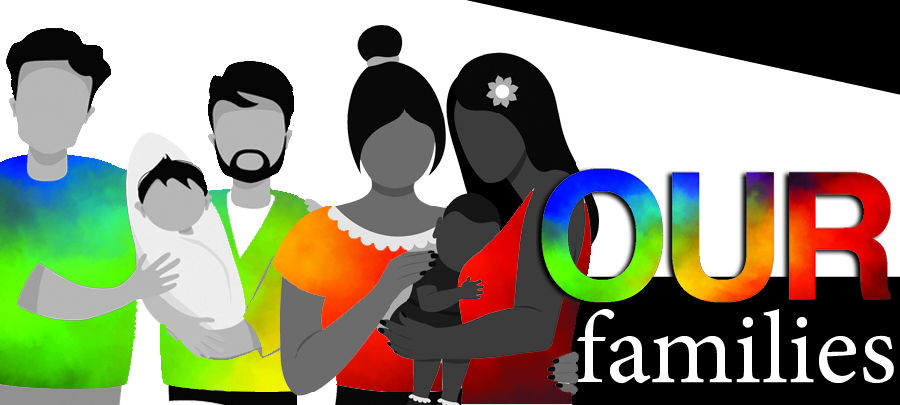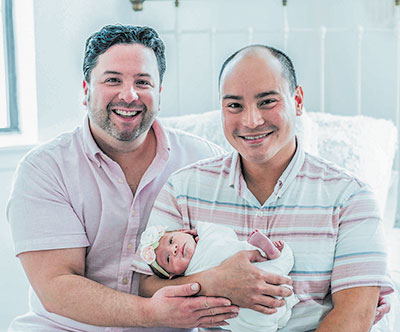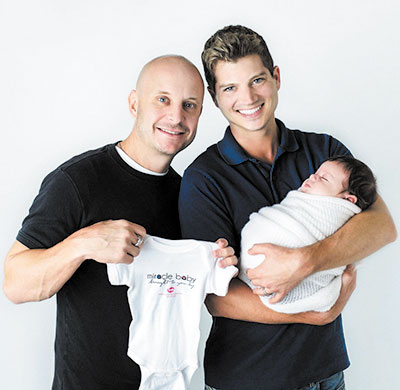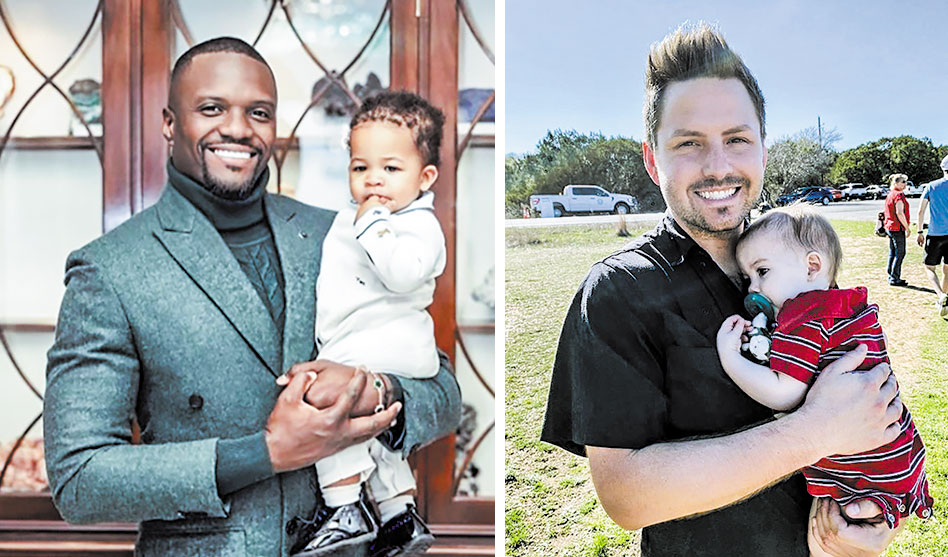Darryl from Houston, left and Drew from Dallas, right
Gay dads share tips for prospective parents
 Egg donation and surrogacy has become one of the most popular options for gay and queer men who want to become fathers. Some who dream about fatherhood are afraid to even research surrogacy, as it is known to be very expensive. But thankfully, our community has Men Having Babies, a nonprofit organization comprising gay dads, surrogates and allies, all dedicated to making gay parenthood a wider reality.
Egg donation and surrogacy has become one of the most popular options for gay and queer men who want to become fathers. Some who dream about fatherhood are afraid to even research surrogacy, as it is known to be very expensive. But thankfully, our community has Men Having Babies, a nonprofit organization comprising gay dads, surrogates and allies, all dedicated to making gay parenthood a wider reality.
And believe it or not, Texas is a great state for surrogacy. No wonder there are so many gay surro dads here.
“Intended fathers are surprised to hear that Texas was one of the first states to support two dads being named on the birth certificate, and that surrogacy is not only possible within the state, but that it is legally supported by the courts,” says Kristen Hanson, owner of the Texas-based Simple Surrogacy, who has been helping gay men become dads for more than two decades.
“Texas is very family friendly, and that applies to ANY family,” Kristen explains. “The intended fathers are also eager to be connected to the growing community of dads in Texas who have become fathers through surrogacy, especially because they want their children to get to know other children whose families were built the same way.
“Dads from other states who come to Texas for their surrogacy journey are drawn by our lower cost of living compared to the coasts, thus translating into a lower-cost journey overall.”
Knowledge is power, and, in the case of gay surrogacy, knowledge is money. Men Having Babies will host a two-day conference for prospective dads (and those who are just researching) from Texas and Florida in Fort Lauderdale Oct. 4-5. But in the meantime, we have collected five tips from guys in our community that may help you see that your dream of fatherhood is not as far off as you may have thought:
Tip 1: Ask the HR person at your workplace if you are eligible for IVF/surrogacy benefits
Drew from Dallas
You might be eligible for thousands of dollars from your employer toward your parenthood journey! Many self-insured companies are adding IVF and surrogacy-inclusive benefits for their employees. When Drew, a proud guncle and a dad-to-be, learned about it, he actually switched jobs and chose his workplace based on these benefits.
“My company, JPMC, is giving employees up to $30,000 max lifetime reimbursement for medical procedures and $10,000 for prescription drugs as part of its workplace benefits,” Drew said. “It can be used for fertility treatments or IVF whether or not you have a medical diagnosis of infertility, for elective fertility preservation (egg and sperm freezing with 12 months of storage) and for associated prescription medications.”
Tip 2: Don’t let the price tag scare you away
Darryl from Houston
At the Men Having Babies conference we say that the more you know and understand the process, the better you’ll be able to budget it and know how and where to cut costs.
“The biggest fear that we had when we started our research was that surrogacy wasn’t an option for us because of the hefty ‘price tag’ that comes with it,” Darryl says. “In the beginning I always associated surrogacy with rich people, to be completely transparent about it.
“After months of research, calls and emails, I hit a brick wall, and that pushed me to voice my frustrations on social media about how frustrating this journey has been so far. A friend introduced me to someone who was in the same position, and we both talked, and she gave me so much insight which lead us to finding the perfect agency for us.”
Tip 3: Make sure you have a good support system
Erik from Plano

Erik and his husband Jarod from Plano
A surrogacy journey can be bumpy at times, not only financially, but also emotionally. That’s why surrounding yourself with supportive people is crucial. Some turn to immediate family, and others turn to the community.
“The guys at the MHB Facebook group were very motivating and helpful and really had us entering the journey in a completely different mindset,” Erik says.
“We are so thankful for that conference and the group because it helped us deal with the setbacks that we did not anticipate. Especially when you think science and funds are on your side but there aren’t copious amounts of funds or embryos available,” he laughs. “The challenging part is when dealing with the human body there are things that are out of your personal control.”
Tip 4: Apply for financial assistance
Jesus from San Antonio
Surrogacy is expensive, and there are several nonprofit organizations that provide financial assistance and grants that include gay singles and couples.
“We heard about financial assistance programs from a friend,” says Jesus, who was just accepted, with his husband James, to the Gay Parenting Assistance Program stage 2. “After a few days of searching for programs we found MHB. Their site had many stories of parents and their journeys plus the organization had a lot of up-to-date information.
“Like most things, applying for the program was a bit nerve-wracking because MHB must do their due diligence, and each step took time, from us gathering the information requested to making ourselves available to meet with them. Thankfully they were flexible during the process on meeting times, and most of it was video calls. We learned that we had to be a bit more patient and allow the process to run its course.
“Mandie from MHB walked us through each step of the process and how MHB would help if we were accepted for GPAP 2. That allowed us to be calmer in the process and to just enjoy the ride. We’ll admit that there are some fears like what if we don’t get accepted or something comes up. But Mandie reassured us that if we don’t get chosen in this round we can apply again next year.”
Tip 5: Learn as much as you can about surrogacy for gay men before you commit
Paul from Dallas

Paul and Stephen from Dallas
If there’s one thing we want you to take away from this article, it would be that educating yourself on the process of surrogacy before you start is the key to a successful (and more affordable) journey. Having said that, there’s a ton of information out there, and you have to pay attention to where you draw your education from.
“Getting past the overwhelming initial information blast before starting the journey was a huge challenge for us,” Paul says. “Honestly, attending the MHB conference was the catalyst that pushed us forward to say ‘We can do this.’
“After we attended the conference, we actually started full speed ahead,” Paul recalls. “We connected with our clinic there,” Paul says. “We ended up having my spouse’s sister be our egg donor, so our little boy is 50/50 genetically related to both our families.”
A journey worth the trip!

